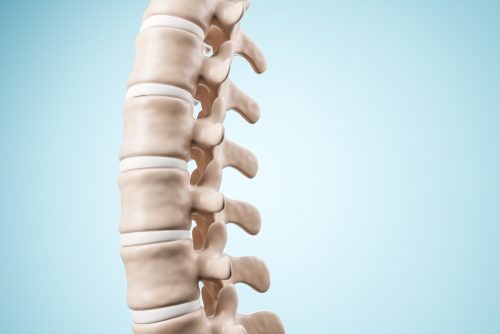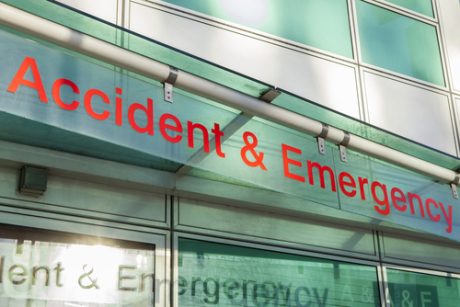Our client Bianca sustained a severe spinal injury following delays in diagnosis and treatment in two separate hospitals. Following a lengthy legal process and initial full refusal of liability by one of the two defendants, Bianca secured a final settlement that will provide for her needs for the rest of her life.
In this article, partner Alison Goldney and trainee solicitor Iola Reynolds outline Bianca’s situation and legal claim.
Background and injuries
Before her injury, Bianca worked part-time as a nanny. She was also studying for a humanities degree at the Open University as part of her longer-term goal of qualifying as a teacher.
Bianca had a history of lower back pain dating back to 2010. In 2018, while on a camping holiday with her family, Bianca had a severe flare-up of her lower back symptoms, which had been getting progressively worse over the previous two days. Her symptoms included sharp, shooting pains in her lower back and numbness and pins and needles in her left leg. The pain became so severe that Bianca and her husband agreed she required medical attention.
Upon arrival at the first defendant hospital, Bianca was admitted to Accident and Emergency for an emergency assessment, which included a pinprick test on Bianca’s legs. This indicated that she had numbness in both lower limbs and buttocks. A bladder scan was also performed, which confirmed Bianca was 250mls in retention. She was transferred to the Emergency Department Assessment Unit, by which point she was unable to walk because of the pain in her back and legs. An MRI scan was performed, and she was diagnosed with a disc prolapse causing critical stenosis of the thecal sac. Bianca was also catheterised, passing a residual urine volume of 900mls. An urgent referral to the second defendant hospital was made for Bianca to undergo spinal surgery. However, there was a significant delay in Bianca being accepted and transferred to the second hospital.
Upon arrival at the second hospital and following assessment, Bianca was advised that she would require a left decompression and microdiscectomy. However, a decision was made not to operate overnight. Bianca instead underwent an emergency left L4/5 decompression and microdiscectomy in the morning.
Following surgery, Bianca was diagnosed with an incomplete spinal cord injury at T11. Her mobility has been significantly impaired. She is reliant on walking aids and a wheelchair for mobility outdoors and lives with bladder and bowel dysfunction and disabling neuropathic pain and numbness.
After her surgery, Bianca was unable to return to work and led an isolated life, restricted to her house due to a lack of care and support to enable her to access the community. At the time, Bianca had two young children and was unable to provide them with the care and support she had before her injury. Her housing conditions were extremely cramped, and with only one bathroom for the whole family, this was especially difficult as Bianca’s children became teenagers and her own bladder and bowel regime would often take hours. This made for very difficult living conditions for both Bianca and her family.

Legal case
Alison Goldney acted as the lead solicitor on the case. Anna Beale KC of Cloisters Chambers was instructed as counsel.
A claim was brought against the first defendant for a delay in reporting the MRI scan, which showed cauda equina syndrome. A claim was brought against the second defendant for the delay in accepting Bianca into its care for emergency surgery. Both failures led to a delay in surgery. A single admission was made by the second defendant that there was an unreasonable delay in accepting Bianca for transfer to their hospital. The first defendant made no admissions.
The timings surrounding Bianca’s care remained the key issue in the claim. Bianca’s position was that had early surgery taken place within the time window that should have occurred, her motor function would have recovered normal or near normal, allowing her to mobilise without aids. The defendants’ position was that even if Bianca’s case on liability were found, it would not have made a difference to the surgery time and her outcome would have been the same.
One interesting aspect of the case was that the defendants sought an appointment for their neurosurgeon to examine Bianca prior to serving their defence. The defendants sought a stay of proceedings pending the examination. This was refused on the basis that our neurosurgery expert had not examined Bianca in order to provide his opinion on causation. In addition, the usual procedure was that expert evidence would be finalised later in the proceedings.
The defendants issued an application, which was heard by a master at the High Court. The application was dismissed on the basis that the defendants had failed to justify a departure from the usual directions in multi-track clinical negligence cases, providing for the exchange of expert evidence after disclosure and exchange of witness statements. This has been a helpful judgment for clinical negligence practitioners, who are often placed under pressure from defendants to allow early examination of claimants.
A joint settlement meeting (JSM) was held in July 2024 in an attempt to resolve the issues between the parties. Unfortunately, this was unsuccessful, as the defendants only offered £250,000. On Bianca’s behalf, we made a Part 36 offer (an offer of settlement without prejudice, save as to costs) of £1.6m.
The experts proceeded to undertake their joint meetings, and a statement was produced detailing the issues of agreement and disagreement between them. The outcome of those joint statements was more favourable to Bianca because the defendants’ experts made some small but important concessions.
Settlement
A mediation took place in October 2024, at which Bianca’s legal team and representatives for the defendants were present. We argued that the Part 36 offer previously made by Bianca was a reasonable offer that took into account the risks of litigation. We highlighted the potentially significant cost consequences the defendants would be subject to if the trial, which was due to commence two weeks after the mediation, went ahead. Negotiations continued late into the day until Bianca accepted a final offer of £1.49m.
This settlement will enable Bianca to purchase a suitable property, make appropriate adaptions and provide her with a safety net for her increased long-term care needs in the future.
"If it wasn’t for the tireless work and constant reassurance provided by Alison, Olivia Shaw and Katie Braithwaite, I don’t know where I’d be. The settlement is life changing, it means my family and I can go back to normality. Alison has been in my corner through the whole process, she’s been so supportive through all my questions and worries. Anna Beale KC was fantastic as well, I don’t think we’d have got the result we did if it weren’t for her, Alison and the Stewarts team. I’m just so grateful for their help and what the settlement means for me and my family."
Bianca, Client
Find out more
You can find further information regarding our expertise, experience and team on our Clinical Negligence page




